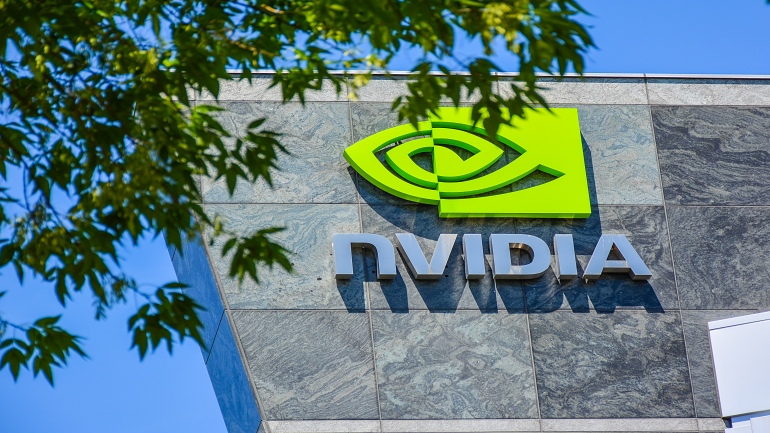In a transformative development for the telecommunications and enterprise sectors, Italtel, a global ICT company, has forged a strategic alliance with Nearby Computing, a leader in edge-to-cloud automation and orchestration platforms. This partnership is poised to expedite the deployment of 5G solutions, private networks, and edge computing, representing a major leap forward in the industry.
The global enthusiasm for artificial intelligence (AI) is set to significantly boost spending in edge computing infrastructure and services, with projections from IDC indicating a jump to $232 billion this year, marking a 15.4% increase from the previous year. This surge reflects the growing demand for technologies that facilitate faster and more efficient data processing closer to the source of data generation.
The 5G Open Innovation Lab (5G OI Lab) has officially introduced eleven new startups from around the world to its Spring program, marking the beginning of its fifth year in operation. The 5G OI Lab has become a beacon of innovation and technological progress in the 5G and Edge technology space, supporting a total of 129 startups since its inception. These startups have collectively raised over $2.23 billion in venture capital, thanks to the support of industry giants like AT&T, Comcast, Microsoft, and Intel, among others.
Despite the complexities, the Telecoms.com survey reveals an exciting consensus: The enterprise private networks may become a 5G goldmine in the next few years. Interestingly, the mobile edge’s role shows signs of decrease. But what about Multi-Access Edge Computing and the high cost of managing mixed networks? And how can vendor selection help overcome security concerns? With both telecoms and customers keen on leveraging 5G’s potential, it’s a thrilling tale of advancement and challenges.
EU Contemplates 5G Vendor Ban Amid Huawei Funding Debate The European Union is debating whether to ban certain companies from their 5G networks due to security concerns. Huawei, the company most affected by the potential ban, is receiving funding of around €3.89 million from the EU for research in areas like 6G, AI, and cloud computing under the Horizon Europe research program. Horizon Europe is the EU’s main research and innovation initiative, with a proposed budget of €12.8 billion in 2024. The EU is worried about member countries, especially Germany, being slow to restrict the use of “high-risk” vendors. Analysts suggest that stricter measures from Germany would greatly impact Huawei’s presence in Europe. Read the full article European Commission Targets Google’s Adtech Dominance with Statement of Objections The European Commission has raised concerns about Google’s control of the digital advertising ecosystem and issued a Statement of Objections against the tech…
Over the past decade, there have been so many advancements that it is difficult to keep up with all the technological breakthroughs. This journey has been thrilling and every invention delivers new technology at a rapid pace. It is critical to look to the future for clues as to where technology will take the society next. And this decade is shaping up to be one of significant technological leaps, as businesses prepare for the large-scale integration of advanced technologies. Here are the top technological trends that are taking the world by storm. Blockchain A blockchain, in its most basic form, is a shared, digital record that cannot be changed once a transaction has been recorded and confirmed. In other words, blockchain technology makes it nearly impossible to falsify a transaction. When you hear the term blockchain, the first thing that usually springs to mind is cryptocurrency; however, there is more…
Amdocs, a leading software and service provider to communications and media companies, has bought an Ireland based Digital BSS company, Openet, that provides charging, policy and data solutions. Two years after their heated legal dispute, the telecom software company Amdocs has ended the litigation by finally licensing a number of Openet patents. As the telecommunications sector has been trending towards digital transformation for some time now, the merger between the two companies will provide exceptional and wide-ranging opportunities for both enterprises. In recent years, the Ireland-based company, Openet, developed modern cloud-based software and 5G products that are recognised around the world for their innovation. The amalgamation of the two companies is said to offer Amdocs‘s customers advances in 5G technologies, cloud, edge computing and Internet of Things (IoT), as well as an elevated customer experience, policy and data management expertise. Shuky Sheffer, CEO of Amdocs Management, commented:…
Hailo raises $60 million to accelerate the launch of its AI edge chip Israeli startup Hailo has raised further USD 60 million in series B funding for artificial intelligence (AI) chips, bringing its total financing to date to USD 88 million. This round, led by existing investors, was joined by strategic investors including ABB Technology Ventures, NEC Corporation, and London-based Latitude Ventures. Hailo said the new funding will help to roll out its Hailo-8 Deep Learning chip and to reach new markets and industries worldwide. The Hailo-8 could give edge devices far more processing power than before, allowing them to perform AI tasks without having to connect to the cloud. The company was founded in 2017, and its technology is designed for the automotive market, smart cameras, smartphones, drones and AR/VR platforms. Read more at https://tinyurl.com/tbwyjnb Ericsson starts manufacturing of 5G base station in Texas Sweden’s Ericsson, one of the…
The American chipset manufacturer Nvidia is rolling out its EGX platform to bring real-time artificial intelligence (AI) to the edge of the network. Nvidia EGX is an accelerated computing platform, which boasts low-latency AI that enables companies to perceive, understand and act in real time on continuous streaming data between 5G base stations, warehouses, retail stores, factories and beyond. AI computing will occur at the edge of the network, where sensors collect data before it is sent to cloud-connected data centers. This platform is expected to satisfy the increasing demand for AI applications to assist numerous devices streaming continuous raw sensor data and is designed for high-throughput AI at the edge where data is primarily sourced to achieve instantaneous and guaranteed response times while reducing bandwidth to the cloud. According to the company, by 2025, there could be up to 150 billion machine sensors and the Internet of Things (IoT) devices streaming…
Verizon has announced a successful edge computing trial on a live 5G network, conducted using their newly formed 5G test bed in Houston. The company’s engineers used Multi-Access Edge Compute (MEC) equipment and MEC platform software, incorporated in a network facility closer to the network edge, and managed to decrease network latency by half. The test results are important for next generation networks, enabling 5G to support low-latency applications such as Virtual Reality (VR). Low latency refers to minimizing the round-trip time taken by data packets. This is an essential yet enormously challenging attribute for a 5G network, and its high performance requirements. At present, many mobile applications depend on cloud-based processing that is handled in centralized data centers, and the physical distances involved increase latency. According to Verizon, locating the computing power nearer to the users at the network edge significantly decreases the time to deliver services. …













